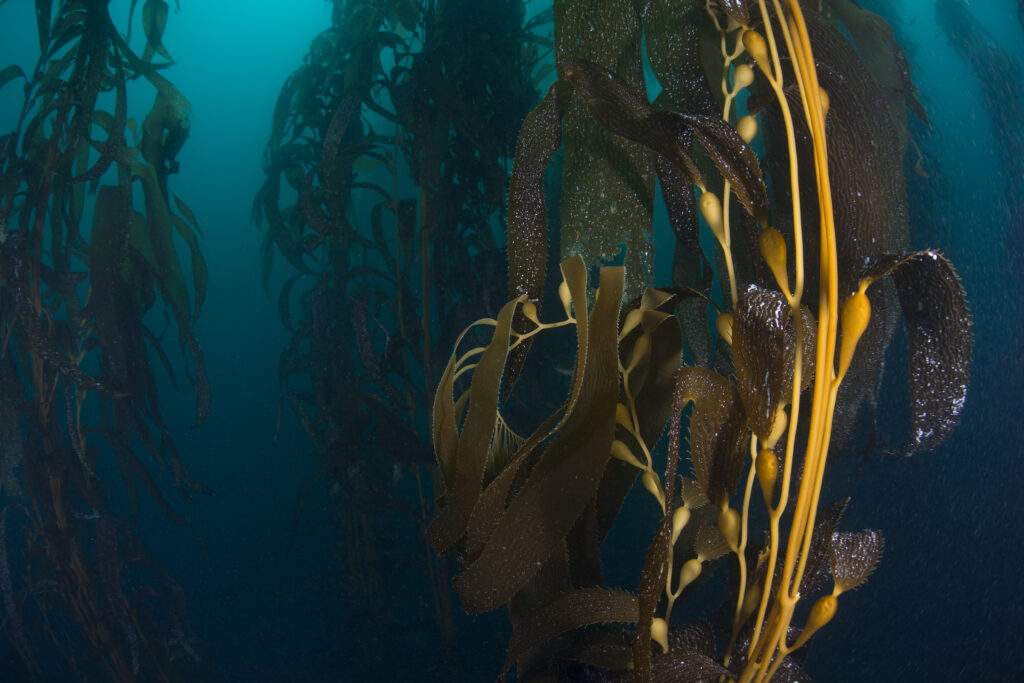A new study by the Friedman School of Nutrition Science and Policy at Tufts University proposed seaweed cultivation as a promising solution to address malnutrition and mitigate climate change simultaneously. Published in the Global Food Security journal, the study revealed both the advantages and the challenges of seaweed cultivation.
A New Source of Income and Nutrition
The research revealed that seaweed cultivation could significantly elevate income levels for farmers, particularly those in low- and middle-income countries (LMICs), specifically in coastal regions of Africa and Southeast Asia.
Compared to livestock farming, the seaweed farming is more sustainable, requiring no land, freshwater or chemical fertilizers. The study further revealed that as the global demand for nutrient-dense seaweed products increases, seaweed cultivation could be particularly profitable. This profit surge would enhance the purchasing power of those who produce, process, package and export the microalgae, leading to healthier dietary habits.
Related: AKUA Secures $3.2 Million for Kelp Burger Venture
Patrick Webb, the Alexander McFarlane professor of nutrition at the Friedman School and senior author of the study, explained that one of the primary challenges of food insecurity in LMICs is the unaffordability of nutritious diets. Webb posited that for a significant portion of the approximately 3.5 billion individuals worldwide who cannot afford a healthy diet, seaweed cultivation could result in increased income and improved nutrition through market purchases.
Simple Seaweed Cultivation Techniques
The seaweed crop has been cultivated in parts of Asia for centuries using fairly straightforward techniques. Farmers usually attach lines of rope to the algae’s roots, which then absorb nutrients from the water to feed the plant. Six to eight weeks later, the seaweed is harvested manually and sun-dried.
Seaweed cultivation is not only easy but also environmentally beneficial. Seaweed carries a small carbon footprint and has the potential to lower the ocean’s carbon levels. The study showed that perennials like brown algae farms can absorb up to ten tons of CO2 per hectare of sea surface annually. Moreover, incorporating seaweed into livestock feed could substantially decrease methane gas emissions.
Production and Processing Challenges
Seaweed cultivation isn’t without its obstacles. Increasingly acidic ocean waters due to climate change could hamper the growth of healthy, edible seaweed. Furthermore, the primary export value of seaweed lies in its extracts, used as ingredients, rather than the whole sea vegetable.
While countries that produce and export brown, green and red seaweeds already possess the necessary infrastructure for effective processing, testing and regulation, most LMICs lack these resources. Moreover, limited data on processing bottlenecks and consumer patterns, which are largely owned by food companies, hinder investment in seaweed cultivation in many LMICs.
The Boundless Potential of Seaweed Cultivation
Despite these challenges, the opportunities that seaweed cultivation offers are vast. In countries like Indonesia, where seasonal labor is readily available, seaweed cultivation has thrived. Industrial-scale seaweed farms are possible, leading to significant exports of carrageenan-rich seaweed species.
Webb emphasized that not all coastlines will be suitable for seaweed cultivation, but many will. To expand the practice, governments need to create food safety regulations and an environment conducive to its growth.
Seaweed cultivation in LMICs is in its nascent stage, but the potential it offers is exciting. Webb suggested that if ministries of Agriculture and Fisheries took the practice seriously, it could be a game changer for these countries, potentially unearthing a gold mine of opportunities.












Join or login to leave a comment
JOIN LOGIN